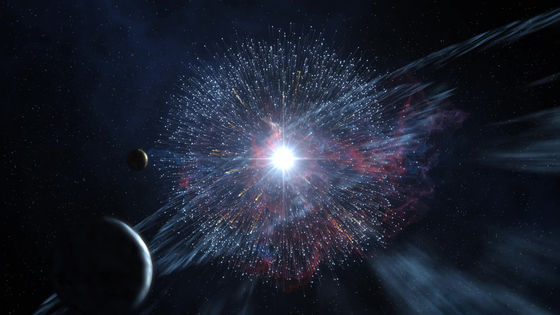Carbon was born just 350 million years after the Big Bang, a major milestone in the origin of life

A study has revealed that galaxies from the early days of the universe contained surprisingly large amounts of carbon. This discovery means that carbon, an element important for the origin of life, was produced earlier than previously thought, suggesting that the conditions necessary for the birth of life may have been in place at an early stage in the universe.
[2311.09908] JADES: Carbon enrichment 350 Myr after the Big Bang in a gas-rich galaxy
Earliest detection of metal challenges what we know about the first galaxies | University of Cambridge
https://www.cam.ac.uk/research/news/earliest-detection-of-metal-challenges-what-we-know-about-the-first-galaxies
James Webb telescope finds carbon at the dawn of the universe, challenging our understanding of when life could have emerged | Live Science
https://www.livescience.com/space/cosmology/james-webb-telescope-finds-carbon-at-the-dawn-of-the-universe-challenging-our-understanding-of-when-life-could-have-emerged
In this study, an international astronomy team led by the University of Cambridge analysed the elements that make up the galaxy GS-z12, observed by the James Webb Space Telescope (JWST).
GS-z12 is one of the most distant galaxies ever observed by humankind. By observing its light, which took more than 13 billion years to reach Earth, we can learn about what young galaxies looked like hundreds of millions of years after the Big Bang.
It is revealed that the oldest galaxy ever observed, 13.4 billion years ago, was photographed by the James Webb Space Telescope - GIGAZINE

The research team used the JWST's near-infrared spectrometer (NIRSpec) to analyze the spectrum of GS-z12 and identify the chemical composition of the material that makes up the galaxy, and found that GS-z12 contains a large amount of carbon.
Regarding the detection of carbon in GS-z12, Roberto Maiorino of the Kavli Institute for Cosmology at the University of Cambridge said, 'It was surprising to find carbon so early in the universe, because it is thought that early stars produced more oxygen than carbon. This fact tells us that the first stars may have been formed by a completely different process to what we previously thought.'
In astronomy, it is believed that in the very early universe, only the simplest elements, hydrogen, small amounts of helium, and trace amounts of lithium, existed. Later, various elements were created through stellar nucleosynthesis, in which new elements are created through nuclear fusion inside stars, and these elements were scattered throughout the universe by supernova explosions, forming rocky planets like Earth.

Until now, it was thought that carbon began to be synthesized about 1 billion years after the creation of the universe, but this research has shown that there may have been an abundance of carbon in the universe just 350 million years after the Big Bang. This will not immediately rewrite theories about the birth of life, but it is expected to provide a major clue for future research into the evolution of the universe.
For example, some cosmological models suggest that the first stars may have exploded as supernovae with less energy than previously predicted, which would have allowed the carbon formed in the outer shell of the star to be blown far enough away to spread across the galaxy, but the oxygen might have been too slow to escape and ended up in a black hole.
'These observations show that carbon was rapidly enriched in the early universe,' said study co-author Francesco DeEugenio of the University of Cambridge. 'As we know, carbon is a building block of life, so perhaps our idea that life in the universe only emerged recently is a mistake, and it could have appeared much earlier. If life exists elsewhere in the universe, it may have evolved in a completely different way to Earth.'
Related Posts:
in Science, Posted by log1l_ks






